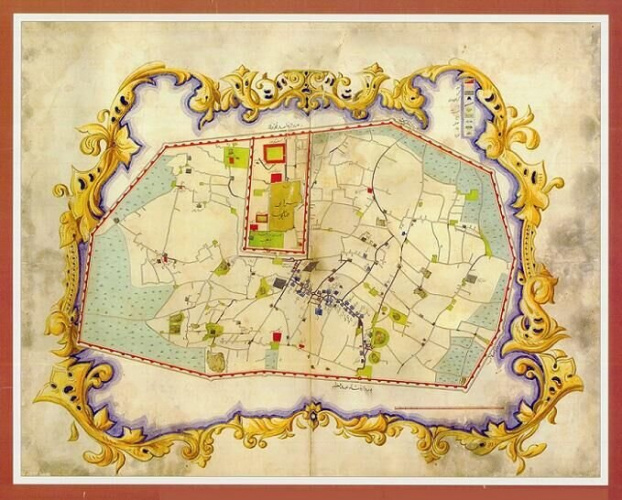NLAI keeps about 900,000 paper documents on Tehran’s history

TEHRAN - About 900,000 paper documents and records on the history of Tehran are being kept at the National Library and Archives of Iran.
The documents include the oldest maps of the city from the Qajar era (1789–1925) to the reports of the daily affairs of Tehran’s neighborhoods and government correspondence, all of which show the historical background of the city, the NLAI director general of archival services Hamed Iranshahi announced on Saturday.
One of the oldest maps of Tehran drawn by prominent Russian Orientalist Ilya Nikolayevich Berezin in 1848 is also among the documents, the official added.
The other valuable document being kept in the NLAI is an old map drawn by August Karl Krziž, a Czech officer and cartographer in the service of the Austrian Empire, who was invited to Iran in the early 1850s by Mirza Taqi Khan Farahani ‘Amir Kabir’ (1807-1852), Iran’s chancellor under Naser al-Din Shah Qajar, to teach in Dar ul-Funun, Iran’s first modern university, he explained.
The map displays Tehran’s mosques, shrines, churches, and synagogues, government and law enforcement agencies, inns, baths, schools, cemeteries, and neighborhoods. The map also contains Tehran’s six historical gates, namely Dowlat, Shemiran, Dolab, Shah Abdolazim, Mohammadieh, and Qazvin.
The first time Tehran is mentioned in historical accounts is in an 11th-century chronicle in which it is described as a small village north of Rey.
Rey, in which signs of settlement dates from 6000 BC, is often considered to be Tehran’s predecessor. It became the capital city of the Seljuk Empire in the 11th century but later declined with factional strife between different neighborhoods and the Mongol invasion of 1220.
Tehran has many to offer its visitors including Golestan Palace, Grand Bazaar, Treasury of National Jewels, National Museum of Iran, Glass & Ceramic Museum, Masoudieh Palace, Sarkis Cathedral, Tehran Museum of Contemporary Art, Carpet Museum of Iran, to name a few.
Courtesy of Tehran Times

Your Comment :